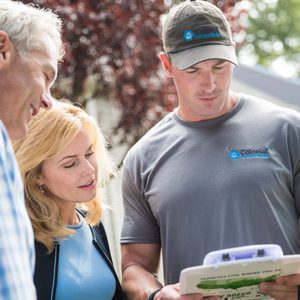Pest Control & Exterminator Services in Norwood, MA
Serving Norfolk County since 1984
More than 300 years ago, the first settlers inNorwood, MA erected the town’s first sawmill. It brought in farmers from all over. Those who settled in Norwood adjusted to life on the Neponset River, one boat ride from Boston.
But Norwood isn’t just another hardworking New England town in Boston’s shadow. Norwood is home to the legacy of a great patriot. Aaron Guild, captain of a group of minutemen out of Norwood, seized the opportunity to show the world what New Englanders were made of during the first days of the American Revolution. He rode to Lexington in support of his brothers-in-arms and helped throw the Redcoats back to Boston.
And it all started back at the sawmill, which was probably teeming with insects. If Colonial Pest Control had been around back then, those insects would retreat faster than those Redcoats did at the hands of Aaron Guild.
Norwood’s proximity to water (and history of sawmills) brings in many moisture-loving insects to the home. At least Colonial Pest Control is around now, and we offer removal of the follow pests:
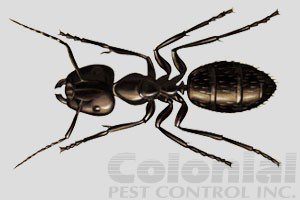
Carpenter ants – These insects are drawn to moisture. You’ll notice their presence by the smooth holes they leave in wood and the sounds of crinkling cellophane behind the walls or in the ceiling. They naturally nest in damp places, like a leaky roof overhang or the apex of a home addition. We use the Microgen Microinjector system to spray a fine cloud of insecticide into small crevices where the nest is, eliminating the ants at their source.
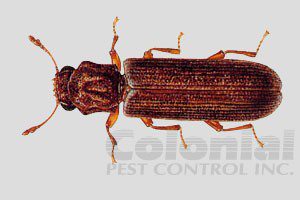
Powder Post beetles – You know you have an infestation in the wood of your garage, attic, basement or other damp place when you find small piles of dust on the floor beneath many pin-sized holes in the wood. These beetles are dealt with using liquid borates, a naturally occurring form of borax, which seeps into the infested wood and continues to protect after the beetles are eradicated.
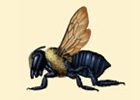
Carpenter bees – Smaller than a honeybee, these pests will bore a 6-inch hole into wood and lay eggs, sealing it with nectar so the eggs can hatch. They also seek out moist and damp areas, like in the eaves of homes. If the eggs are not found, they can winter in these holes, hatch, create more holes, and spread, weakening the strength of homes.
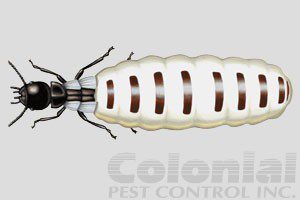
Termites – The worst wood-boring pest of all, these white or tan insects cause billions of dollars in damage each year around the country due to their proclivity for moist wood, which they don’t bore into like these other pests—termites just eat it all. They also don’t live in the wood as these other pests do. In the northeast, the main termite species is the Eastern Subterranean Termite. They make their nest in the soil around buildings and create underground tunnels directly to their food source (i.e. your basement).
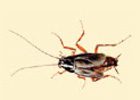
Oriental cockroaches – These African-born pests are about an inch long and take on a dark red or blackish color. Their wings appear to be too small for their bodies, but that doesn’t matter so much to one of the quickest skittering insects in your kitchen. These pests resist cold fairly well, and like the other pests that plague Norwood, oriental cockroaches love damp spaces like basements. You’ll probably see a few hanging around your drains. Look for them to scatter in your kitchen when you turn on a light. These roaches will search out food sources and can leave pathogens that cause hepatitis and dysentery.
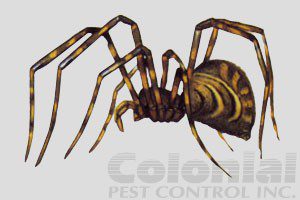
House spiders – Probably the most common spider variety in the country, these 1/3-inch arachnids will also be found in damp spaces, or even doorways and thoroughfares. House spiders don’t do much damage, and in fact will capture and eradicate many insects on their own if left untouched. However, spiders can cause extreme emotional stress in some cases, and to allay those fears, Colonial Pest Control will be happy to come out and rid your home of these nightmarish pests.
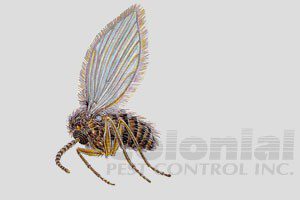
Drain flies – Believe it or not, drain flies love moisture, too. Only the moisture you’ll find them around comes from your drains that aren’t properly cleaned. Their larvae thrive in the gelatinous film that can line your drainpipes where decaying organic matter is present. The adults are weak fliers, so if you suspect you have a drain fly infestation, there will be a drain nearby.
